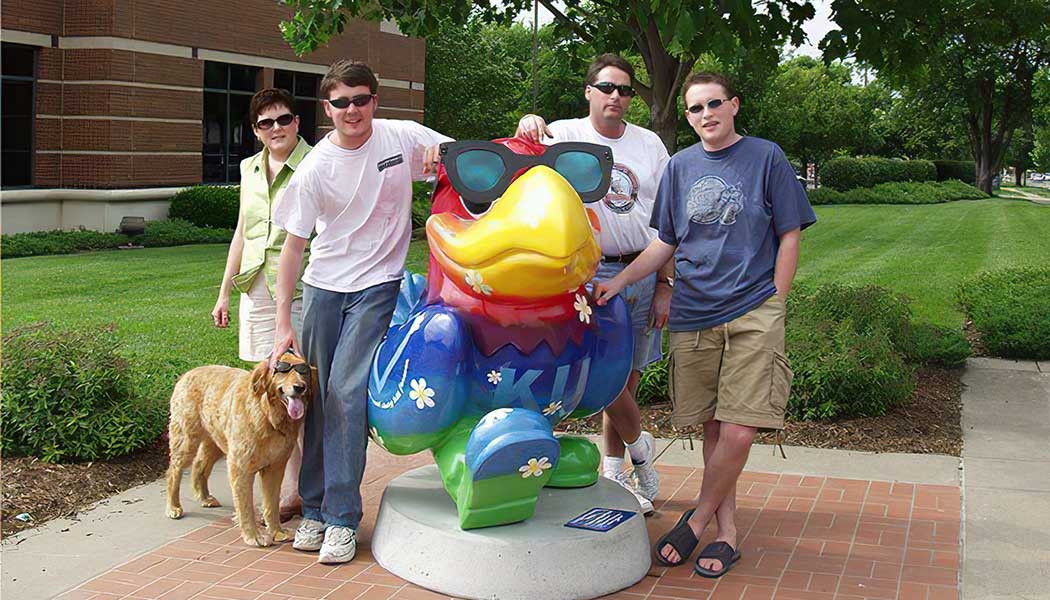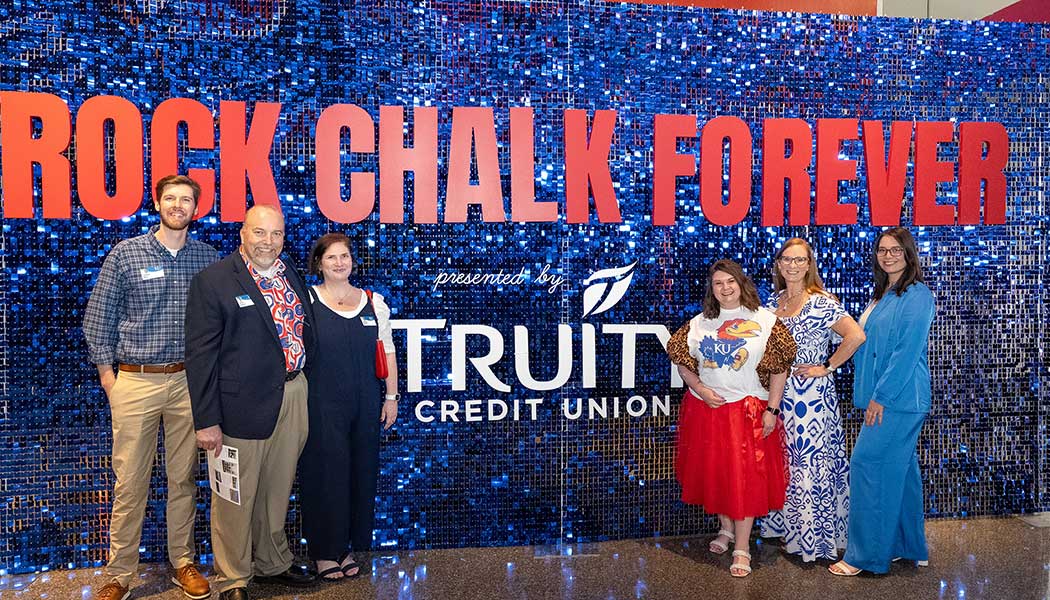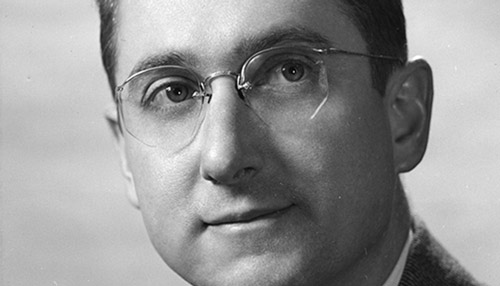Momentous Visit
National Science Foundation director, Sen. Moran meet with researchers who lead new and continuing NSF-funded projects
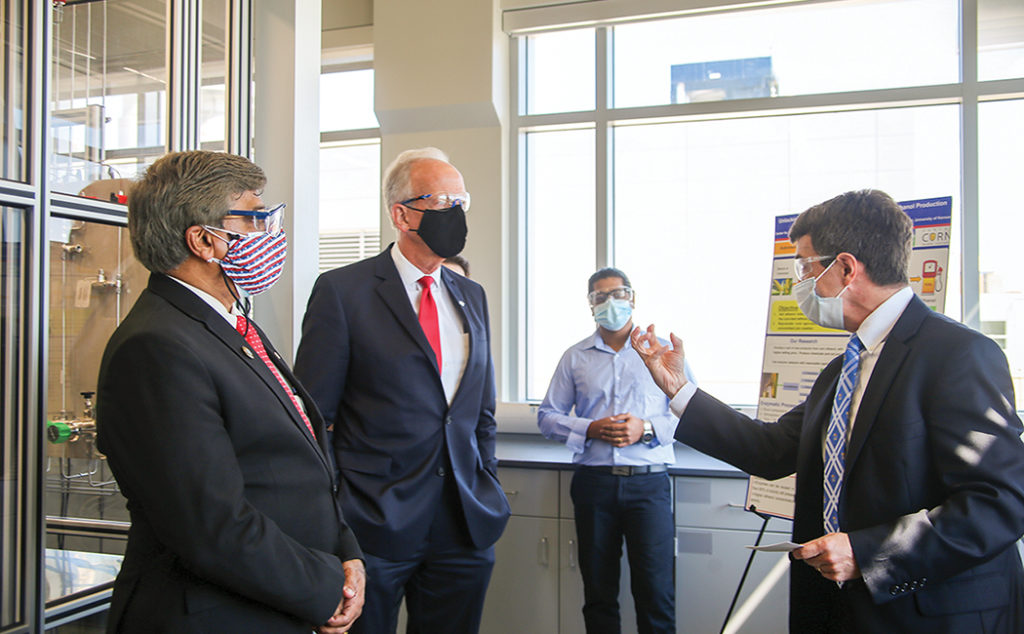
Three KU professors will help lead research to improve the manufacturing and recycling of plastics as part of a four-year, $4 million grant from the National Science Foundation (NSF).
“We’re excited to advance technologies that will help society transition to a more sustainable plastic economy,” said lead investigator Bala Subramaniam, Dan F. Servey Distinguished Professor of Chemical & Petroleum Engineering and director of the Center for Environmentally Beneficial Catalysis (CEBC).’
“This award highlights the key role Kansas plays in advanced manufacturing and how they continue to innovate in critical areas such as renewable plastics that will benefit the entire nation”
— Sethuraman Panchanathan
Subramaniam’s KU colleagues on the project are Alan Allgeier, associate professor of chemical & petroleum engineering and CEBC deputy director, and Donna Ginther, Roy A. Roberts Distinguished Professor of Economics and director of KU’s Institute for Policy & Social Research. Completing the leadership team are Timothy Dawsey, executive director of the Kansas Polymer Research Center at Pittsburg State University, and Raul Lobo, Claire D. LeClaire Professor of Chemical & Biomolecular Engineering at the University of Delaware.
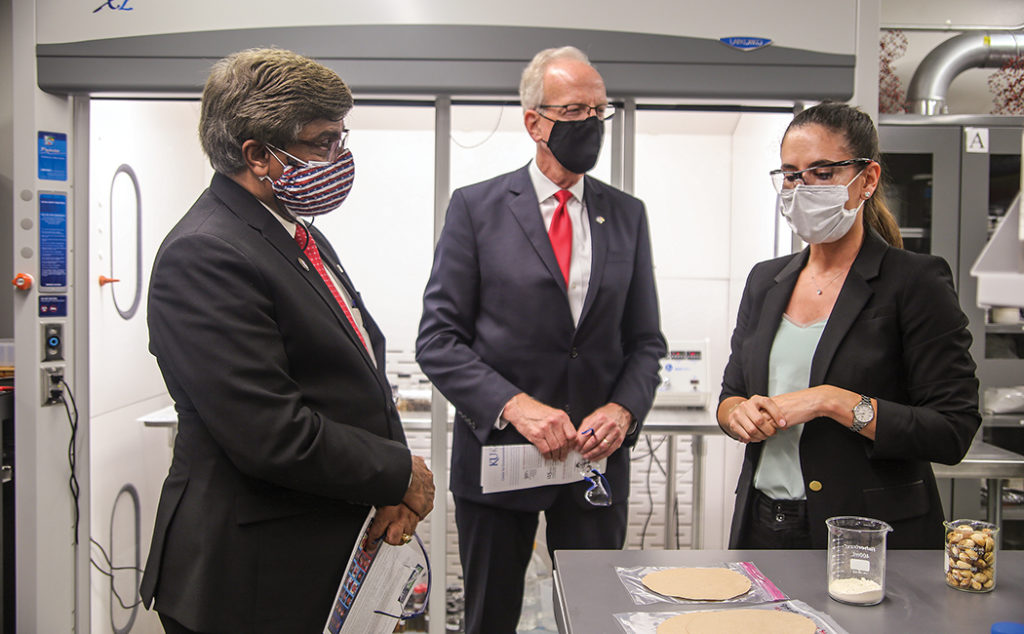
News of the grant was delivered personally by NSF director Sethuraman Panchanathan, who visited KU Sept. 17 with U.S. Sen. Jerry Moran, c’76, l’82, to meet some of the researchers and students involved in NSF-funded research at the University.
“This award highlights the key role Kansas plays in advanced manufacturing and how they continue to innovate in critical areas such as renewable plastics that will benefit the entire nation,” Panchanathan said.
The project will strive to reduce the environmental toll of discarded plastics in two ways. First, researchers will develop sustainable methods to transform non-food biological resources such as grasses and crop leftovers into plastic products—which in turn will advance economic growth for farmers. Second, the team will improve processes for breaking down used plastic into elements to create new plastic.
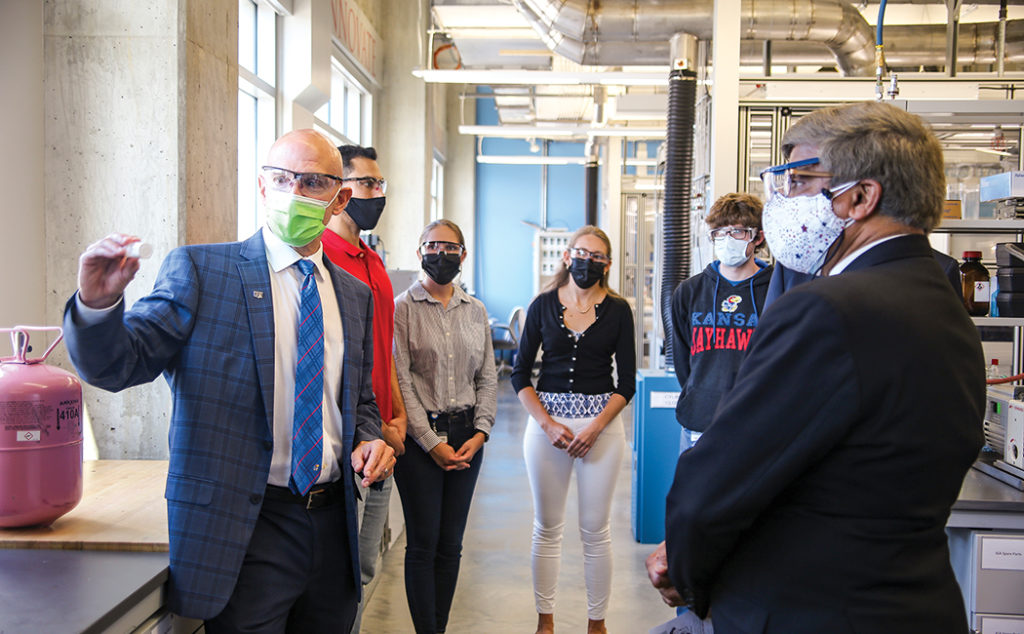
The KU grant was one of nine the NSF announced in September to fund collaborative projects that target national priorities. Kansas and Delaware both participate in the NSF EPSCoR, which stands for Established Program to Stimulate Competitive Research. For 40 years, the initiative has strengthened studies in science, technology and engineering in about half of all U.S. states.
Since 2006, KU has received 11 EPSCoR awards totaling more than $72.4 million.
Over the past decade, 26 KU faculty members, including eight women, have received NSF career awards.
In fiscal year 2021, the NSF awarded $23.1 million to KU for projects that include 37 principal investigators across 17 research centers and
departments.
RELATED ARTICLES
/




